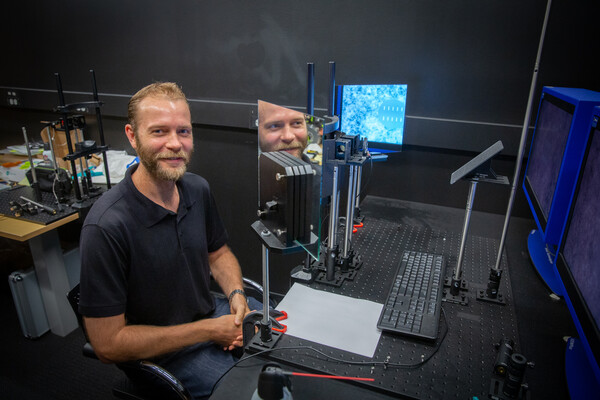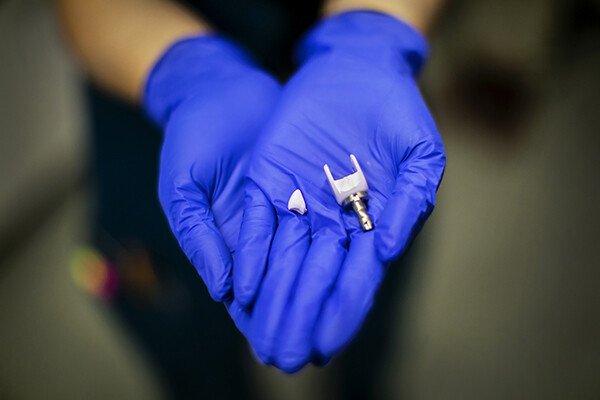5/18
Health Sciences
Closing the racial disparity gap in survival after in-hospital cardiac arrest
Despite investments to improve the quality of resuscitation efforts, fewer than 25% of all patients that experience cardiac arrests in hospitals survive to discharge, and survival varies significantly across hospitals and by race.
Penn joins ‘cryo revolution’ by adding Nobel-winning microscope
The Singh Center’s Krios G3i, an electron microscope for studying samples at extremely low temperatures, allows researchers to look at cells, proteins, and nanoparticles like never before.
Translating groundbreaking scientific discoveries into practical technologies
Amidst the numerous challenges posed by COVID-19, the Penn Center for Innovation has continued to facilitate impactful innovations created at Penn, fostering partnerships and helping to realize new products and businesses.
Potential cellular target for eliminating bone breakdown in osteoporosis found
New research has discovered a cell type that governs the way bones form and maintain themselves, opening up a potential target for future therapies for bone disorders like osteoporosis.
Women and minorities value, perceive, and experience professionalism differently
A new Penn Medicine study finds marginalized groups of people value professionalism more—and are more likely to leave a job at an institution due to issues of professionalism—compared to their white, male counterparts.
One step closer to a clinical fix for the side effects of monovision
Monovision counters the deterioration of the ability to see up close but also causes dramatic visual distortions. New research confirms that a solution that successfully works with trial lenses—the special lenses used by eye doctors—also succeeds with contact lenses.
Embracing digital dentistry
The School of Dental Medicine is enhancing and integrating its digital capabilities, opening up new possibilities for training students, conducting research, and delivering seamless and cutting-edge patient care.
From 84 days to five hours: Telemedicine reduces dermatology consult time
Allowing primary care doctors to take photos and send them to dermatologists improves access to specialty care, without any increase in costs.
Two Penn faculty named 2020 AAAS Fellows
Qi Long and E. Michael Ostap of the Perelman School of Medicine are among a cohort of 489 distinguished scientists recognized with the honor from the American Association for the Advancement of Science.
The last line of defense: Contact tracers and COVID-19 patients
The third in a series of Penn Medicine’s public health outreach to stem the spread of the coronavirus looks at the role of contact tracing.
In the News
What’s going on with tranq?
Jeanmarie Perron of the Perelman School of Medicine says that the appearance and progression of skin ulcers and tissue loss on xylazine users is different than with other intravenous drugs.
FULL STORY →
It’s time to end the Medicare-Medicaid merry-go-round
In an opinion essay, Rachel M. Werner of the Leonard Davis Institute, Wharton School, and Perelman School of Medicine says that Medicare and Medicaid fail to integrate coverage and coordinate care across their two plans.
FULL STORY →
Inside Penn’s transfer center
Penn Medicine’s transfer command center gets patients from affiliated hospitals and hospitals outside Philadelphia to specialized care that can save lives, with comments from CEO Kevin Mahoney.
FULL STORY →
The quest for treatments to keep weight off after Ozempic
Researchers at Penn are conducting a co-authored study of the brains, fat and muscle cells, and eating patterns of people trying to maintain new body sizes.
FULL STORY →
Operating rooms are major sources of greenhouse gasses. Penn is eliminating a form of anesthesia that hangs in the air for more than a decade after use
Penn Medicine is phasing out the anesthesia desflurane at four of its six hospitals to eliminate harmful greenhouse gases, with remarks from Greg Evans.
FULL STORY →















